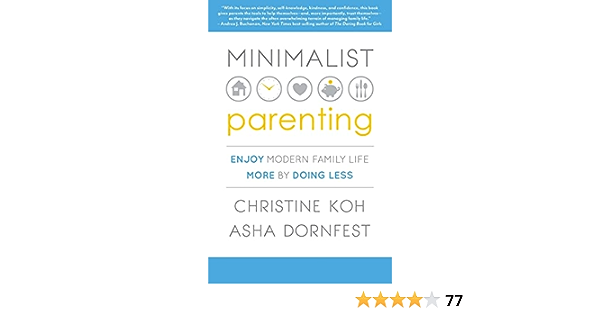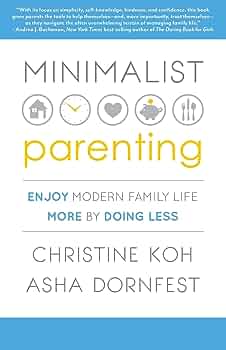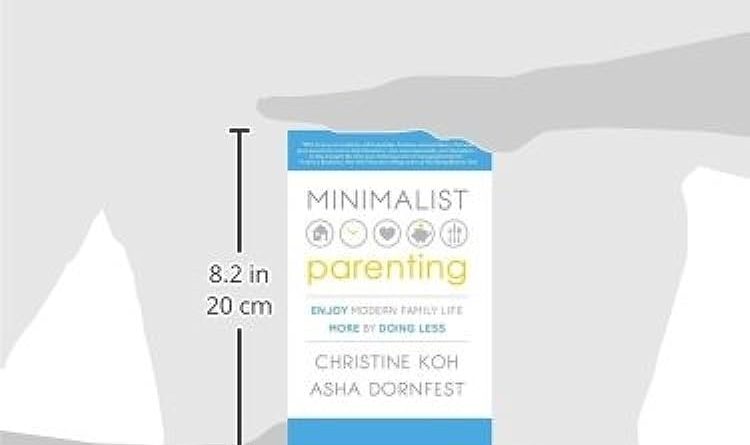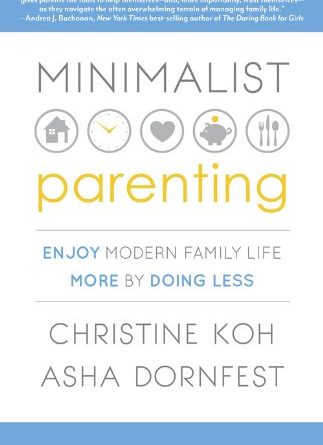
At Nelly’s Life, we believe in embracing a simplified approach to modern family life through minimalist parenting. As a mother of three daughters and a passionate advocate for intentional living, I understand the challenges that come with juggling a busy lifestyle. Through my own journey from a life burdened by excess and unhappiness to one filled with purpose and joy, I have discovered the transformative power of minimalism and veganism. On NellysLife.com, you’ll find a wealth of personal stories, practical advice, and thought-provoking insights that will guide you towards a more intentional and compassionate life. Join our vibrant community and let me be your guide as we embark on a transformative adventure towards a life of purpose, simplicity, and well-being. Welcome to Nelly’s Life, where minimalism and veganism converge to create a truly cherished way of living.
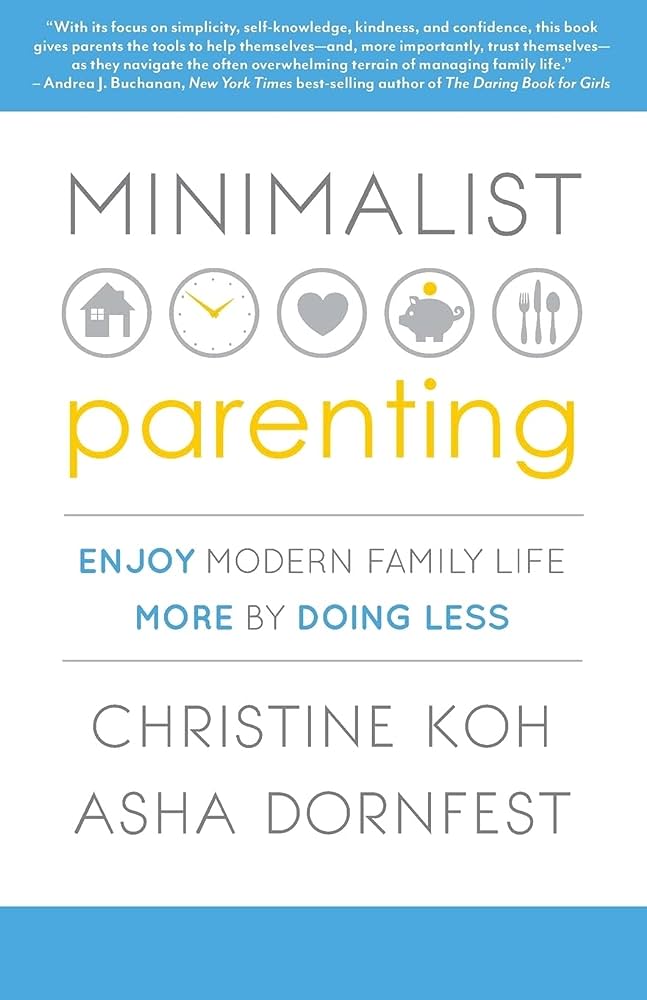
Table of Contents
What is Minimalist Parenting?
Minimalist parenting is a philosophy and approach to parenting that focuses on simplifying and decluttering various aspects of family life. It emphasizes the importance of reducing excess, streamlining routines, and prioritizing quality time with children. By embracing minimalist parenting, parents can create a calm and peaceful environment, foster strong family relationships, and promote their own mental well-being.
Defining Minimalist Parenting
Minimalist parenting is about letting go of the pressure to have it all and do it all. It’s about recognizing that less is often more when it comes to raising children. This approach encourages parents to be intentional about the choices they make for their family and to focus on what truly matters.
In minimalist parenting, the emphasis is on simplifying and streamlining. This can mean decluttering the physical space, establishing clear boundaries and routines, and reducing the overall noise and distractions in family life. It’s about creating an environment that allows children to thrive and parents to enjoy the journey of parenthood.
Benefits of Minimalist Parenting
Minimalist parenting offers a multitude of benefits for both parents and children. By embracing a simplified approach to parenting, families can experience the following:
-
Reduced stress and overwhelm: By decluttering physical and mental spaces, parents can eliminate the chaos and stress that often come with an abundance of possessions and responsibilities.
-
Calm and peaceful environment: A minimalist home is free from excessive clutter and distractions, creating a serene environment that promotes relaxation and well-being for everyone in the family.
-
Strong family bonds: By prioritizing quality time and emotional connection, minimalist parenting helps build strong family relationships and fosters a sense of belonging.
-
Increased mindfulness: Embracing minimalism encourages parents to be present with their children, fostering mindfulness and deepening the parent-child bond.
-
Sustainable lifestyle: Minimalism promotes eco-friendly practices, teaching children about sustainability, and reducing waste and consumption, which contributes to a healthier planet for future generations.
-
Financial stability: By prioritizing essential purchases and teaching children about value and money, minimalist parenting can help families save money and achieve financial stability.
Overall, minimalist parenting offers a holistic approach to family life, allowing parents to truly enjoy the modern family experience with less stress and overwhelm.
Embracing a Simplified Approach to Parenting
Clearing the Clutter
One of the fundamental aspects of minimalist parenting is decluttering the physical environment. This involves going through the belongings of both parents and children and deciding what truly adds value to their lives. Taking a minimalist approach means letting go of items that are no longer needed or loved and keeping only those that are essential and meaningful.
Clearing the clutter not only creates a more organized and visually appealing home but also reduces the amount of time spent cleaning and maintaining belongings. It can also teach children important lessons about letting go of material possessions and valuing experiences over things.
Creating a Minimalist Home
Creating a minimalist home goes beyond decluttering. It involves intentional design choices that promote simplicity and functionality. Minimalist homes are characterized by clean lines, open spaces, and a limited color palette. Furniture and decor are kept to a minimum, with each item serving a specific purpose.
By creating a minimalist home, parents can provide a calm and peaceful environment for their children to thrive. It also reduces visual and sensory distractions, allowing children to focus on play, learning, and creativity.
Streamlining Daily Routines
In addition to decluttering the physical space, minimalist parenting also involves streamlining daily routines. This includes establishing clear and consistent schedules for meals, bedtime, and other activities. By having predictable routines, children feel more secure and can develop a sense of independence and responsibility.
Streamlining daily routines also allows parents to have more time and energy for meaningful interactions with their children. By eliminating unnecessary tasks and focusing on what truly matters, parents can enjoy quality time together and build stronger bonds.
The Art of Mindful Parenting
Being Present with Your Children
Minimalist parenting emphasizes the importance of being present with your children. In today’s fast-paced world, it’s easy to get caught up in distractions and multitasking. However, when parents are fully present and engaged with their children, it deepens the connection and creates special moments of joy and intimacy.
Being present means setting aside dedicated time for one-on-one interactions with your child, free from distractions like smartphones or work-related tasks. It involves actively listening, engaging in meaningful conversations, and showing genuine interest in your child’s thoughts and feelings.
Prioritizing Quality Time
Quality time is at the heart of minimalist parenting. It’s about creating meaningful experiences and memories with your children. This can be as simple as reading a book together, going for a walk, or having a family game night. By prioritizing quality time, parents can nurture their relationship with their children and create a strong foundation of love and trust.
Quality time doesn’t have to be elaborate or expensive. It’s about being fully present and engaged with your child, regardless of the activity. By slowing down and focusing on the moment, parents can fully appreciate the time they spend with their children and make it truly count.
Fostering Emotional Connection
Emotional connection is essential for healthy parent-child relationships. Minimalist parenting encourages parents to focus on fostering emotional connection by creating a safe and nurturing environment for their children.
This involves actively listening to your child’s thoughts and feelings, validating their emotions, and being responsive to their needs. By fostering emotional connection, parents can help their children develop strong emotional intelligence, resilience, and a sense of security.
Additionally, fostering emotional connection includes practicing empathy, expressing love and affection, and providing opportunities for open and honest communication. By prioritizing emotional connection, parents can build a strong foundation of trust and support within the family.
Minimalist Parenting and Mental Well-being
Reducing Stress and Overwhelm
One of the key advantages of minimalist parenting is its ability to reduce stress and overwhelm. By simplifying and decluttering various aspects of family life, parents can eliminate the constant feeling of being overwhelmed by possessions, responsibilities, and expectations.
Excess can be a significant source of stress, both physically and mentally. With fewer possessions, parents can spend less time managing and organizing their belongings, allowing for more time to focus on their own well-being and their relationships with their children.
By prioritizing what truly matters and simplifying daily routines, parents can experience a greater sense of calm and control over their lives. This reduction in stress and overwhelm creates space for parents to be more present and engaged with their children, leading to deeper connections and a more enjoyable parenting experience.
Promoting a Calm and Peaceful Environment
A minimalist home is more than just a decluttered space. It is a haven of calm and peace, providing an environment that promotes relaxation and well-being for the entire family. By creating a calm and peaceful environment, parents can foster a sense of security and stability for their children.
A clutter-free home allows for better concentration, improved sleep, and reduced anxiety for both parents and children. It provides a space where children can play, learn, and explore without unnecessary distractions. A minimalist home also encourages creativity and imagination, as children are not overwhelmed by excess toys and possessions.
Promoting a calm and peaceful environment extends beyond the physical space. It also involves setting boundaries around screen time, noise levels, and stimulation. By creating an environment that supports relaxation and mindfulness, parents can contribute to their own mental well-being and that of their children.
Taking Care of Your Own Needs
Minimalist parenting emphasizes the importance of self-care and prioritizing your own needs. Parenting can be demanding, and it’s crucial for parents to take time for themselves and recharge. By prioritizing self-care, parents can maintain their own mental well-being and be better equipped to care for their children.
Self-care can take many forms, from practicing mindfulness and meditation to engaging in hobbies or activities that bring joy and relaxation. It’s about setting boundaries and learning to say no when necessary. By valuing self-care, parents can model healthy habits for their children and create a family culture that prioritizes well-being.
Taking care of your own needs is not selfish; it’s a vital part of being an effective and present parent. By attending to your physical, emotional, and mental well-being, you can show up for your children with love, patience, and energy.
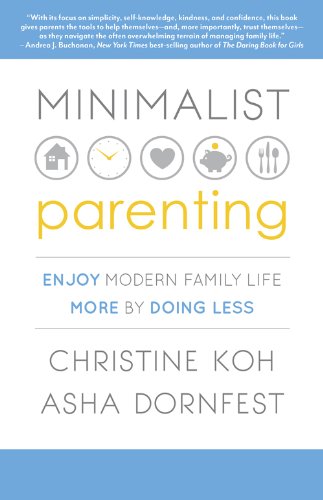
Sustainable Parenting Practices
Choosing Eco-friendly Toys and Products
Minimalist parenting aligns with sustainable practices by encouraging parents to choose eco-friendly toys and products for their children. This involves considering the environmental impact of the materials used, the production process, and the lifespan of the items.
Opting for toys made from sustainable materials such as wood, organic cotton, or recycled plastic reduces the reliance on plastic and helps protect the environment. Additionally, choosing high-quality, durable toys that can withstand multiple children or generations reduces waste and promotes a more sustainable lifestyle.
By selecting sustainable products, parents can teach their children about the importance of environmental responsibility and inspire them to make conscious choices as they grow.
Teaching Children about Sustainability
Minimalist parenting provides an excellent opportunity to teach children about sustainability and the importance of reducing waste. Parents can involve their children in the decluttering process, explaining the concept of letting go of items that are no longer needed or loved.
Children can also be taught to take care of their belongings, repair or repurpose items when possible, and give away or donate things that are still in good condition but are no longer needed. By involving children in sustainable practices from a young age, parents can instill lifelong habits of environmental stewardship.
Reducing Waste and Consumption
Minimalist parenting naturally leads to a reduction in waste and consumption. By decluttering and being intentional about purchases, parents can significantly decrease the number of items that end up in landfills. This not only benefits the environment but also promotes financial stability and a more mindful approach to consumption.
Parents can adopt practices such as buying secondhand items, borrowing instead of buying for temporary needs, and reducing packaging waste by opting for bulk purchases or reusable alternatives. By reducing waste and consumption, parents can teach their children about the importance of mindful choices and minimizing their environmental footprint.
Balancing Technology and Minimalist Parenting
Setting Healthy Boundaries
Technology plays a prominent role in our lives, and it’s essential to set healthy boundaries when it comes to its use in a minimalist parenting approach. Excessive screen time can disrupt family connections, hinder development, and contribute to stress and overwhelm.
Setting healthy boundaries involves establishing screen-free times and zones in the home. This can include designated periods where screens are not allowed, such as during meals or before bedtime. Creating screen-free zones, such as bedrooms or specific areas of the house, can also encourage more face-to-face interactions and quality time.
By setting healthy boundaries around technology, parents can ensure that screens are not a constant source of distraction or disconnection. Instead, they can foster an environment that promotes presence, mindfulness, and meaningful interactions.
Encouraging Mindful Tech Use
While it’s important to set boundaries, technology can still play a beneficial role in a minimalist parenting approach. Mindful tech use involves being intentional about the content consumed and the time spent using technology.
Parents can encourage their children to engage in educational or creative activities online, such as learning apps or interactive games. By curating content and apps that align with family values and promote learning and growth, parents can turn screen time into a positive and enriching experience.
Additionally, parents can model mindful tech use by being conscious of their own screen time in the presence of their children. By demonstrating a balanced approach and prioritizing face-to-face interactions, parents can encourage their children to do the same.
Embracing Offline Activities
Minimalist parenting encourages a balanced approach to technology by emphasizing the importance of offline activities. Spending time outdoors, engaging in imaginative play, or pursuing hobbies and interests that don’t involve screens can foster creativity, well-being, and family connections.
Parents can create opportunities for offline activities by dedicating specific times for outdoor play, art projects, or family outings. By embracing offline activities, parents can promote a more well-rounded and fulfilling childhood experience for their children.
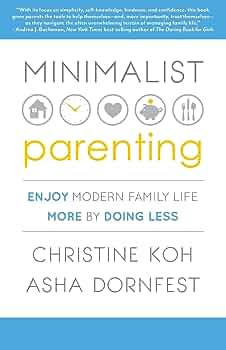
Minimalist Parenting and Family Relationships
Building Strong Bonds
Strong family bonds are at the core of minimalist parenting. By prioritizing quality time, emotional connection, and open communication, parents can build and nurture meaningful relationships with their children.
Building strong bonds involves creating a safe and nurturing environment where children feel loved, supported, and understood. It means being emotionally available, actively listening, and responding with empathy and compassion. Strong family bonds are built on trust, respect, and open dialogue, allowing each family member to express themselves authentically.
By focusing on building strong bonds, parents can create a family culture that values connection and celebrates each individual’s uniqueness. This foundation of love and support provides children with a sense of belonging and security that lasts a lifetime.
Effective Communication Strategies
Communication is crucial for healthy family relationships. Minimalist parenting emphasizes effective communication strategies that promote understanding, unity, and cooperation within the family.
Open and honest communication involves actively listening to each other’s perspectives, expressing thoughts and emotions clearly, and resolving conflicts in a respectful and constructive manner. It means creating a safe space where each family member feels heard and valued.
Parents can model effective communication by practicing active listening, using non-violent communication techniques, and fostering an environment where everyone’s voice is respected. By prioritizing effective communication strategies, parents can foster strong relationships and create a supportive and harmonious family culture.
Creating a Supportive Family Culture
Minimalist parenting encourages the creation of a supportive family culture where everyone feels valued, respected, and supported. This involves establishing family routines, traditions, and rituals that promote togetherness and strengthen the family bond.
A supportive family culture is one that celebrates individual achievements, encourages cooperation and teamwork, and values diversity. It’s about creating an environment where each family member’s needs and contributions are recognized and appreciated.
Parents can foster a supportive family culture by involving children in decision-making, practicing gratitude and appreciation, and encouraging acts of kindness and empathy. By prioritizing a supportive family culture, parents can create an environment where children thrive emotionally, intellectually, and socially.
Creating Minimalist Spaces for Children
Organizing Toys and Belongings
Creating minimalist spaces for children involves organizing their toys and belongings in a way that promotes order and functionality. This means decluttering toys that are no longer used or loved, and organizing the remaining items in a way that is easily accessible and visually pleasing.
Parents can consider using storage solutions like bins, baskets, or shelves to keep toys organized and out of sight when not in use. Rotating toys can also help minimize overwhelming choices and keep playtime fresh and exciting for children.
By creating organized spaces for toys and belongings, parents can reduce visual clutter and create environments that inspire creativity and independent play. It also teaches children valuable skills in organization and responsibility.
Designing Functional and Clutter-free Bedrooms
Minimalist parenting extends to the design and organization of children’s bedrooms. Creating functional and clutter-free bedrooms involves selecting furniture and decor that serve a specific purpose and keeping the space visually clean and uncluttered.
Parents can choose furniture that maximizes storage space, such as beds with built-in drawers or shelves. They can also opt for simple and neutral decor that allows for versatility as the child grows. By keeping the bedroom free from excessive toys and distractions, children can have a peaceful and restful sleep environment.
Designing functional and clutter-free bedrooms fosters a sense of calm and promotes better sleep and relaxation. It also teaches children the value of simplicity and organization in their personal spaces.
Creating Play Zones
Minimalist parenting encourages the creation of designated play zones in the home. These play zones are dedicated areas where children can engage in imaginative play, creative activities, or quiet reading.
By creating play zones, parents can establish boundaries around play and minimize the spread of toys throughout the house. This promotes organization and reduces the visual clutter that can come from scattered toys.
Creating play zones involves setting up designated areas with storage solutions for toys and supplies. It can be a corner of a room, a specific playroom, or even an outdoor space. By providing dedicated spaces for play, parents can create environments that focus on imagination, creativity, and independent play.
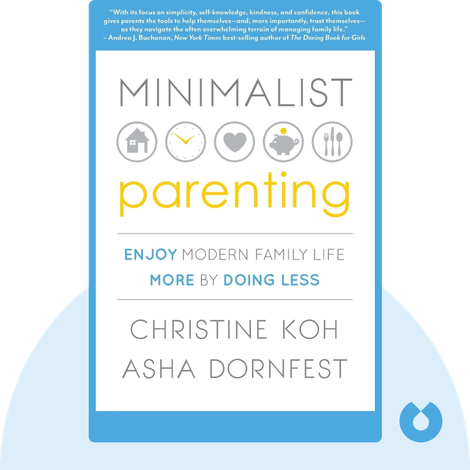
Minimalist Parenting on a Budget
Practical Tips for Saving Money
Minimalist parenting can be a financially beneficial approach to raising children. By prioritizing essential purchases and eliminating unnecessary expenses, parents can save money and achieve financial stability.
Practical tips for saving money in minimalist parenting include:
-
Buying secondhand items: Opting for gently used clothes, toys, and furniture can save a significant amount of money while still providing quality items for children.
-
Borrowing instead of buying: For temporary needs or special occasions, consider borrowing items from friends or family instead of purchasing them.
-
Planning meals and reducing food waste: Meal planning can help reduce unnecessary trips to the grocery store and minimize food waste. By planning meals and using ingredients efficiently, parents can save money on groceries.
-
DIY projects and repairs: Instead of buying new, consider DIY projects and repairs for household items or children’s toys. This not only saves money but also promotes creativity and resourcefulness.
By implementing these practical tips, parents can save money and prioritize spending on experiences and meaningful purchases for their children.
Prioritizing Essential Purchases
Minimalist parenting encourages parents to prioritize essential purchases and avoid unnecessary spending. This means focusing on items that add value to the family’s life and align with their values.
Prioritizing essential purchases involves asking questions like:
- Does this item serve a specific purpose or add value to our lives?
- Is it durable and of high quality?
- Will it contribute to the well-being and development of our children?
By considering these questions before making a purchase, parents can avoid impulse buying and reduce the accumulation of unnecessary possessions.
Teaching Children about Value and Money
Minimalist parenting offers an opportunity to teach children about the value of money and conscious consumption. By involving children in financial decision-making and discussing budgeting, parents can empower them with essential life skills.
Parents can teach children about value by discussing the difference between needs and wants, comparing prices, and encouraging thoughtful decision-making when it comes to purchases. By involving children in these conversations, parents can instill financial responsibility and the ability to differentiate between what is truly important and what is fleeting.
Additionally, parents can set an example by modeling minimalist habits and mindful spending. By demonstrating conscious choices and responsible financial behavior, parents can instill lifelong values of financial literacy and mindful consumption in their children.
Conclusion
Minimalist parenting offers a transformative approach to modern family life. By embracing simplicity, decluttering, and focusing on what truly matters, parents can create a calm and meaningful environment for their children to thrive.
From reducing stress and overwhelm to promoting strong family bonds and sustainable practices, minimalist parenting provides a pathway to a more intentional and fulfilling family life. By prioritizing quality time, fostering emotional connection, and creating supportive family cultures, parents can create lasting memories and nurturing relationships with their children.
Creating minimalist spaces for children, balancing technology use, and managing finances in a conscious way further enhance the benefits of minimalist parenting. By setting healthy boundaries, being present, and prioritizing essential purchases, parents can simplify their lives and set the stage for a more intentional and financially stable future.
Minimalist parenting is not about depriving children of experiences or possessions; rather, it’s about prioritizing what truly adds value to their lives and cultivating a sense of purpose, simplicity, and well-being. By embracing minimalist parenting, families can enjoy the modern family life with less stress, overwhelm, and distractions, and instead focus on the joy and connection that come from intentional and mindful choices.
